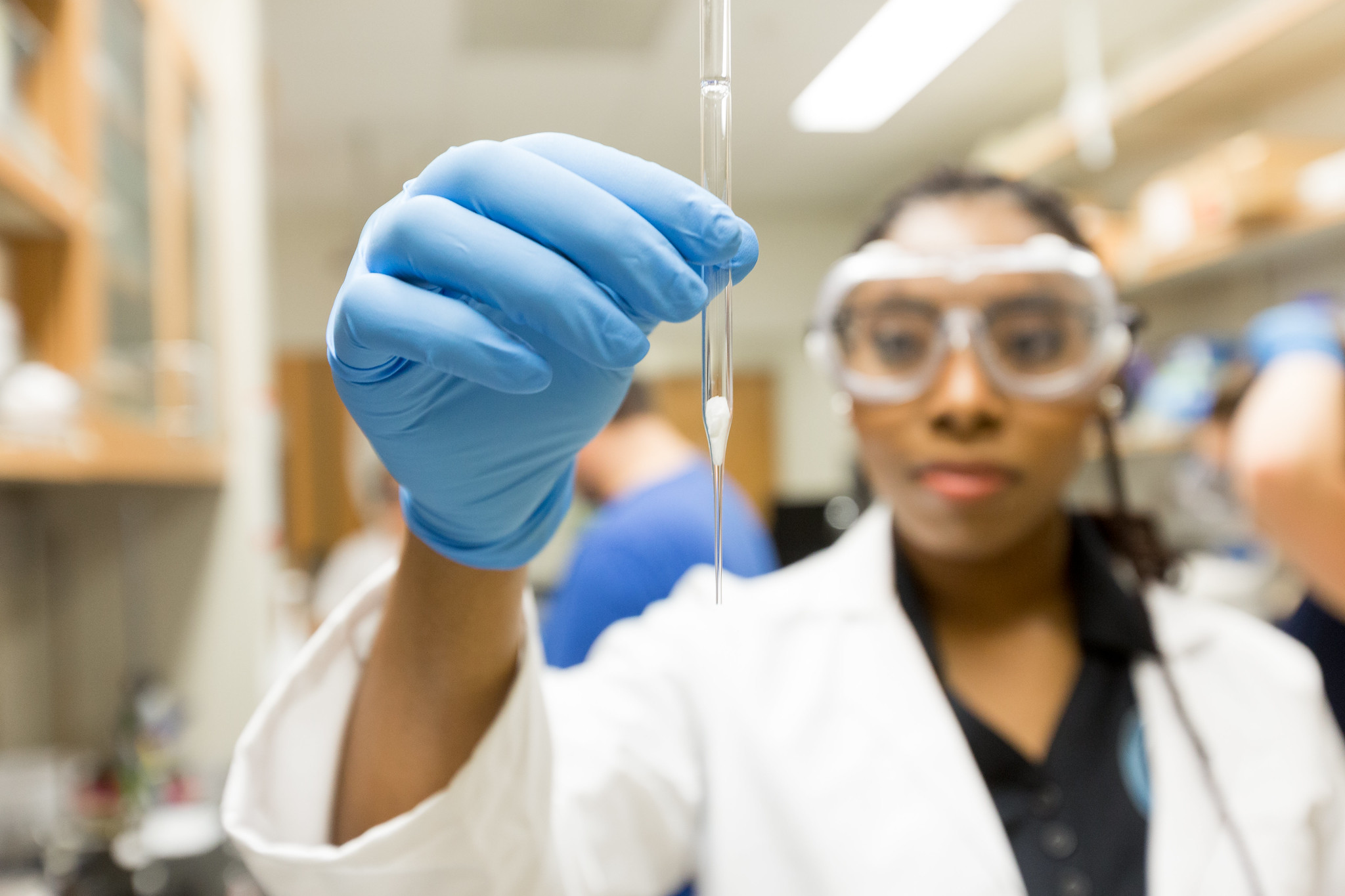NAMS Undergraduate Teaching Assistantships (UTA)
Becoming an undergraduate teaching assistant (UTA) in one of the NAMS laboratory courses is a great way to gain experience in explaining course material to fellow students and deepen your understanding of the skills and content in the course. You will also have the opportunity to build a working relationship with the course instructor.

With permission of the course instructor, UTAs in NAMS register for a 1-credit course in XXXX 2840 or XXXX 3840, where XXXX is the program acronym (e.g., CHEM, MARS, etc.), depending on the level of the course.
Requirements
To become a UTA, you must have previously completed the course with a final grade
of B or better and have permission from the instructor of the course. Some instructors
may require a higher grade minimum or additional requirements, so it is best to reach
out to the course instructor if you are considering becoming a UTA in their course.
Learning Objectives
As a UTA in NAMS, you can expect to gain experience in the following areas:
Communication
Helping Others
Depth of Knowledge
Expectations
Since you will be earning one credit for your work as a UTA, you should expect to spend, on average, three hours per week preparing and assisting during laboratory meetings.
Additionally, as a UTA, you will be expected to:
- Set up Lab. Help set up and take down loabs when needed.
- UTA Meetings. Attend UTA meetings or otherwise prepare for lab.
- Journaling. Complete journal or reflective writings to document skills you are learning, and reflect on your learning experiences as a UTA.
- Assist Students. Assist students during labs in answering questions offering assistance and encouragement, and providing feedback to instructor.
Your instructor's expectations of you should be made clear at the beginning of the semester.
How to Apply
-
Identify the course and section for which you wish to UTA.
-
Contact the instructor of that course via email to confirm they are willing to work with you as a UTA.
-
Work with the instructor to complete the independent study paperwork, ensuring that you understand the expectations the course instructor has for you as the UTA. The course instructor will forward the independent study paperwork to the appropriate person.
-
Complete any required safety trainings prior to the start of the course.
-
Double-check that the course makes it on your Degree Works before the drop/add period ends.
Grading
Because you earn credit being a NAMS UTA, your grade will be determined by a combination of your preparation for, attendance, and participation in the lab as well as your completion of assigned reflections. The number of assignments and the exact grade breakdown will be at the discretion of the course instructor but should be clearly communicated to you at the beginning of the semester.
Some sample reflective assignments include:
Workplace Skills
Challanges
Knowledge Gained
Self Assessment
Additional Reading


